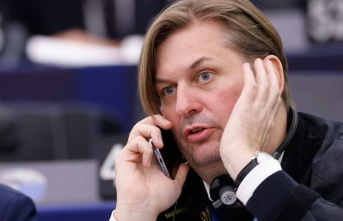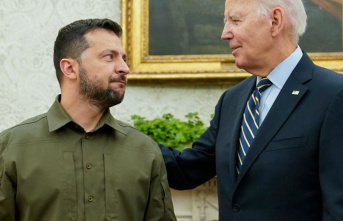On the eve of a european summit where he will be issue a tax digital on the multinational, the decision of the court of the EU falls as a sacred stone into the pond and a slap in the face to the commissioner Vestager, internationally known, since its decision in 2016, as the " tombeuse Apple ". Thus, Ireland would have, rightly, allowed Apple to pay a minimum tax (€13 billion surplus, according to the Commission) through what is called a tax ruling (*). Since the 1990s, Ireland is home to two branches of Apple's (ASI'S) who pay a tax to the low-to the irish State. Dublin takes advantage of this hosting, to the detriment of all the other countries in which Apple operates. When, in 2016, the Commission endorses this practice and obliges Ireland to recover the $ 13 billion of tax benefits to the firm from Cupertino, Ireland will fight to refuse this money. Why the european court does it cover what many consider the tax optimization aggressive ?
In fact, the european judges do not make policy, but they are of the right. The Commission has used competition law because it does not have the hand on the fiscal policy of member States. This indirect means of competition law is more fragile. Morality : there is no tax law with the law of competition... Margrethe Vestager has reacted to the judgment of the Court of the EU in reminding us what it believes must be taken into account : "an irish subsidiary of Apple had, for example, recorded a profit european of the $ 22 billion [about 16 billion euros] in 2011, of which only about € 50 million had been treated as taxable in Ireland by virtue of the provisions of the decision corresponding tax. If the member States accord to certain multinational companies of the tax advantages which their competitors do not, this is detrimental to fair competition in the EU. This is also a denial of the public finances and the citizens of the funds necessary for much-needed investment – even more in times of crisis. "The Commission can still appeal the Court's decision.
justice can not do the job of politics
For the little story, you should know that the commissioner Vestager will do nothing, but rely on the DG Comp, a veritable State within a State within the Commission. It is DG Comp, which inspires and supports all of its decisions. However, at the time, the director-general of DG Comp was none other than the German mr Johannes Laitenberger, who joined the Court of the EU in September 2019... in other words, his new colleagues have censured a decision that it has inspired and instructed in its previous functions. It does not lack salt !
To attack the decision to 2016, Ireland has relied on 9 means. The judges, under 509 recitals ( !), were of the view that the Commission has not demonstrated that the Apple company had enjoyed a selective advantage constituting State aid. "The Commission has not carried out its analysis," noted the judges. For example, it has not been demonstrated that the Apple company benefited from a significant tax benefit in the exchange of job-creation in Ireland. The Commission's reasoning was based on the idea that the two branches irish question, ASI and AOE, performing complex functions taking the greatest risks for the group Apple. So, they would have had to have salary levels much higher than those laid down in the tax treaty signed with Ireland. But the court has detailed the functions of the two branches, irish Apple, and considered that the Commission had not proved its allegations.
Read also The small tax digital franco-German buried at Brussels
If the member States of the EU want to put an end to the tax competition in which some of them indulge, it is up to them to do so. The judgment in Ireland vs. Commission result may be the awareness that the Commission cannot do everything and that it is up to the member States to take their responsibility. We may see a parallel with the decision of the constitutional Court of Karlsruhe on the 5th of may last when she felt that the ECB had to justify more precisely its program of repurchase of debt. Angela Merkel had concluded that we can't ask the ECB and the political leaders had to take their responsibilities in the face of the economic crisis. The chancellor had called for the establishment of a true "political Union" and, a few days later, she decided to support, together with Emmanuel Macron, a stimulus package of $ 500 billion of subsidies.
Germany is an advocate for the minimum tax on companies
In tax matters, it is exactly the same problem : either the member States continue to shoot himself in the legs, or they introduce some form of fiscal Union where the taxes on the companies would be roughly comparable, where they do not decrease below a minimum rate. Germany is campaigning elsewhere in the G7 for the introduction of a minimum global tax on corporations. Why not start with the introduce within the EU ?
In any case, in the case of Apple, Ireland has won a battle quite paradoxical given the context. Like many european States, Ireland is going to sink economically with the crisis of the Covid-19, and would need the money. The recovery plan of the EU provides only a small subsidy to Dublin (€1.2 billion), which is more than 10 times less than what the litigation Apple could bring... And yet, Ireland is fighting for not to recover this amount. It is also Ireland, with Denmark and Sweden, which blocked the tax digital Board Écofin of November 2018. At the time, the minister of Finance of ireland, Paschal Donohoe, contended that the United States have significantly changed the tax landscape, so that it would be more prudent to take this into account and wait for...
Ireland wins on all tables
Donohoe was concerned about international reactions which could be "put in great difficulty," the exporting countries of the european Union. He drew attention to the fact that the giants of the digital can generate big revenue without making big margins. The " Digital Services Tax ", in his eyes, would weaken the european start-ups. The implementation of a taxation eu could, according to him, the delay in the adoption of an international standard to which the OECD is working on his side. Not to mention the risk of "double taxation" that would run this tax, he concluded.
It is the same Paschal Donohoe who has just been elected president of the eurogroup, against the advice of France and Germany, who supported his rival, the Spanish Nadia Calviño. Double victory for Ireland in a few days, slap monumental for the Commission and the bitter defeat for the other member States... let's Add that the european Union is steadfastly supportive of the Irish in the case of Brexit, protect all its weight to the agreements of Belfast and, therefore, peace between the two Ireland. We can say that she is a good girl with Dublin...
Read also The Europe against Google, act II
Last result : if tax competition is accepted as the "wild" between the member States, how could the EU object to the United Kingdom he could become a tax haven to its doors ? If the famous "level playing field" (fair competition) is not already in place within the EU, why London – who left Europe – should-he fold ? There is, therefore, behind the judgment in irish, an issue far more important, and a man who, from a distance, rubs her hands, the so-called Boris Johnson...
(*) Since 2017, a european directive, taken under the impulse of the Commissioner Moscovici, imposes on member States the automatic exchange of information tax agreements with multinationals.
Date Of Update: 15 July 2020, 21:33










